Persecuting a person for the way they were born is one of the most heinous injustices. It punishes a person for something they did not cause, cannot change, and must live with.
For example, the oppression of Native American tribes is an ugly chapter in the history of the US and Canada. Native children were taken from their homes, forced into schools, and forbidden to speak their language or practice their culture. This effort to eliminate the Native American way of life was disguised as “civilizing” the children by separating them from their families and homes. Both the US and Canada now recognize this as wrong.
Currently, the Chinese government is similarly oppressing the Uyghurs, which includes forced labor.
Definition of Forced Labor
Freedom, liberty, choice, and agency are fundamental to the American identity, history, and policy.
“Forced labor” encompasses various situations but fundamentally refers to work performed against a person’s will. This includes situations where individuals are prisoners, indentured servants, restricted in their ability to travel, or too young to make an informed decision to work.
In the US, it is illegal to import products made by individuals under forced labor conditions.
The Chinese government faces significant scrutiny by the US Government over concerns of cultural cleansing and the forces labor of the Uyghurs, an ethnic group in China’s Xinjiang Uyghur Autonomous Region.
The Chinese have engaged in behaviors that impact the Uyghur’s ability to practice their religion and speak their language. The US Government and other human rights groups have reported on the detainment of over one million Uyghurs, with 100,000 suspected of being forced into labor camps making goods that make their way into markets around the globe.
Legal and Illegal Convict Labor
In the US, convict labor is legal under certain conditions. Prisoners, having forfeited their liberty due to crimes committed, can be compelled to work for the state. This labor typically involves producing goods, like license plates, for state use.
Governments, being non-profit entities, cannot profit from convict labor. Goods and services are sold at cost, preventing profit generation from prison labor. This restriction extends to private industries, which cannot profit from forced labor since employees in the private sector retain the right to quit their jobs. Consequently, goods produced in “education camps” or similar settings in China are banned from US importation.
Forced labor is not limited to western China; it happens all across the world. The International Labor Organizationestimates that 28 million men, women, and children are currently subjected to forced labor.
US Customs and Border Protection’s Focus on Forced Labor
US Customs and Border Protection (CBP) has intensified efforts against forced labor, particularly concerning the Uyghurs in China. CBP’s fact sheet highlights the crackdown on imports suspected of involving forced labor. If goods are from certain regions, there is a presumption of forced labor, and importers must prove otherwise. This rebuttable presumption places the burden of proof on the importer.
Recent Developments in the Automotive Industry
In May 2024, BMW, Volkswagen (VW), and Jaguar Land Rover (JLR) faced significant negative press related to forced labor in their supply chains. VW disclosed the issue upon discovery, while others were notified by the US government.
Resources for Importers
Public and accessible lists identify companies and regions known or suspected of using forced labor. Screening vendors against these lists, though not legally mandated, is the simplest way to comply with legal requirements. US Customs provides a UFLPA list, and the International Trade Administration offers a consolidated screening list for the departments of State, Commerce, and Treasury.
The Department of Labor offers tools to help US companies comply with forced labor prevention standards, such as the creatively named “Comply Chain.” Additional resources are available from the Department of State and other international organizations like the United Nations and the G7, emphasizing the global stance against forced labor for profit.
- UFLPA List by US Customs
- Consolidated Screening List by the International Trade Administration for the departments of State, Commerce, and Treasury
- Comply Chain Tool by the Department of Labor
- Resources from the Department of State here and here
- United Nations Position Papers
- G7 Publications
Stopping Forced Labor
Here’s the gist: there are public and freely accessible lists of companies and geographic areas known to use or suspected of using forced labor.
It is a simple matter to require in one’s purchase order terms and conditions that require one’s vendors to screen their vendors as well so that the demand for goods from forced labor is stopped.
The prevention of forced labor in supply chains is critical for maintaining ethical and legal business practices. Utilizing available resources and complying with international standards ensures that businesses do not inadvertently support forced labor.
